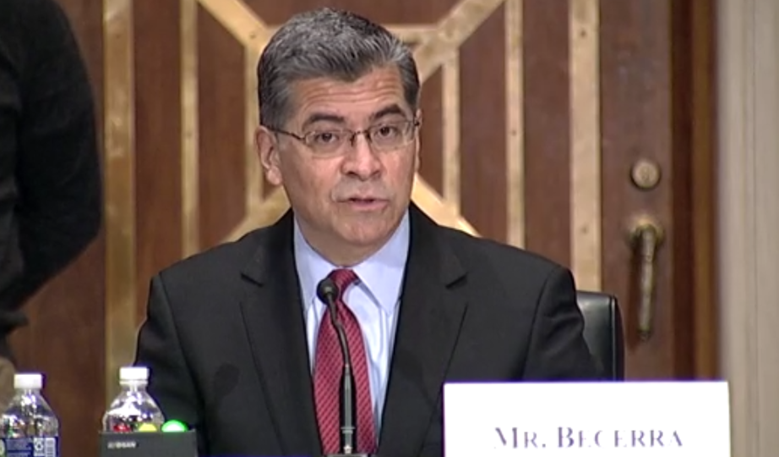U.S. District Judge Jeremey Kernodle on Feb. 23 struck down part of the enforcement of the No Surprises Act by Health and Human Services (HHS) Secretary Xavier Becerra, saying that under the new rule, “because insurers had ultimate say on what in-network rates they accepted in 2019, insurers now hold ultimate power — and are charged by regulation — to calculate the [qualifying payment amount]” for a medical bill.
This was wrong, wrote Kernodle because “The Act also prohibits the arbitrator from considering the provider’s usual and customary charges for an item or service, the amount the provider would have billed for the item or service in the absence of the Act, or the reimbursement rates for the item or service under the Medicare, Medicaid, Children’s Health Insurance, or Tricare programs.”
Here Kernodle was referring to 42 U.S.C. Section 300gg-111(c)(5)(D), which states “In determining which offer is the payment to be applied with respect to qualified [independent dispute resolution] IDR … the certified IDR entity with respect to a determination shall not consider usual and customary charges, the amount that would have been billed by such provider or facility with respect to such items and services had the provisions of section 300gg–131 or 300gg–132 of this title (as applicable) not applied…”
In other words, the Becerra rule favored insurers over doctors’ offices by attempting to define a qualifying payment amount as closely akin to what insurers’ had previously set those rates, too. In the meantime, the intent of the law was the opposite, not to lock in billing rates that had been already set under the prior legal and regulatory scheme, with the goal of creating a new level playing field via an arbitration process between health service providers and those entities that pay for those services when it comes to disputed medical billing.
In the ruling, which blocked enforcement of HHS’ proposed arbitration scheme, Judge Kernodle blasted Becerra for “rewriti[ing] clear statutory terms.”
Kernodle explained, “The Act instructs arbitrators to ‘consider’ the [qualified payment amount] QPA and the five other factors in deciding which offer to accept… That’s it. The Rule, in contrast, requires arbitrators to ‘select the offer closest to the [QPA]’ and deviate from that number only if ‘credible information’ ‘clearly demonstrates’ that the QPA is ‘materially different from the appropriate out-of-network rate.’”
Kernodle added, “Because the Rule ‘rewrites clear statutory terms,’ it must be ‘h[e]ld unlawful and set aside’ on this basis alone.”
Now, there is a push for lawmakers to encourage Becerra to follow the law, rather than rewriting the law to suit one interest group over another. Americans for Limited Government President Rick Manning on March 18 supported Judge Kernodle’s ruling and urged members of Congress who supported the No Surprises Act to contact Secretary Becerra, saying, “Any lawmaker who supported the No Surprises Act should be furious that Becerra tried to turn it into a giveaway to insurers by adopting price controls that would shut down rural hospitals and make it harder for patients to see a doctor when they need one.”
Manning noted that the impact of the regulation would have been to implement price controls on doctors’ offices, an approach that Congress explicitly rejected when the No Surprises Act was debated, “Secretary Becerra and the Biden administration sided with big insurance companies by using the rulemaking process to turn the bipartisan No Surprises Act into government price controls by another name.”
The upside, Manning said, was that it would force HHS to revisit the regulation, concluding, “Thanks to Becerra’s incompetence, a federal court threw out those rules and told HHS to go back to the drawing board to implement the law the way Congress intended.”
Robert Romano is the Vice President of Public Policy at Americans for Limited Government Foundation.







